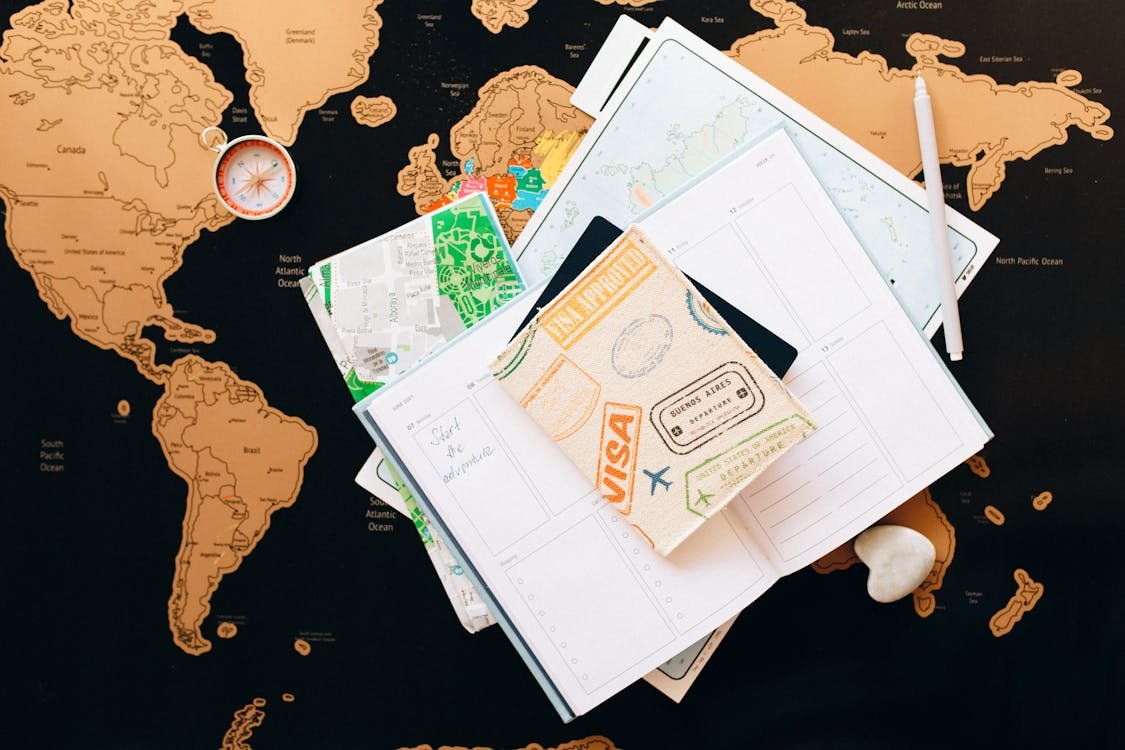𝟓 𝑴𝒊𝒏𝒖𝒕𝒆 𝑻𝒉𝒐𝒖𝒈𝒉𝒕𝒔: 𝘛𝘩𝘦 𝘎𝘭𝘰𝘣𝘢𝘭 𝘊𝘭𝘢𝘴𝘴𝘳𝘰𝘰𝘮: 𝘏𝘰𝘸 𝘛𝘳𝘢𝘷𝘦𝘭 𝘢𝘯𝘥 𝘐𝘮𝘮𝘦𝘳𝘴𝘪𝘷𝘦 𝘌𝘹𝘱𝘦𝘳𝘪𝘦𝘯𝘤𝘦𝘴 𝘊𝘳𝘦𝘢𝘵𝘦 𝘞𝘦𝘭𝘭-𝘙𝘰𝘶𝘯𝘥𝘦𝘥 𝘓𝘦𝘢𝘳𝘯𝘦𝘳𝘴
The classroom isn’t just four walls anymore.
With everything changing so fast—apps, updates, the way we connect—you’d think education would evolve just as quickly. But often, it doesn’t.
We upgrade our phones every season, but still hold onto outdated ideas of what learning should look like.
A global classroom shifts that. It takes the best parts of what we already know and adds real-world experience—culture, curiosity, conversations that cross borders.
It’s not just about passing tests or memorising facts.
It’s about helping kids adapt, connect, and actually enjoy the process of learning.
From Passport Stamps to Perspective Shifts
As a native English teacher, I’ve had the privilege of developing my teaching skills across a wide range of environments around the world. From Europe to Asia, I’ve come face to face with children from incredibly diverse cultural backgrounds—and the impact has been profound, not only for my students but also for me as an educator and person.
My teaching journey began in Spain, where I quickly discovered that simply being from another country—and not speaking the local language fluently—created a surprising shift in the classroom dynamic. My students became more proactive, more curious, and more engaged. The unfamiliarity pushed them out of their comfort zones, and it did the same for me. I realized that effective learning often begins where comfort ends.
That spark continued to grow as I taught in Italy, then later in Malaysia, where I worked with Korean students. Each setting challenged and refined my approach. Not only did these experiences diversify how I taught, they also broadened what I taught. I found myself weaving in cultural comparisons, personal stories, and insights from my own upbringing as a British woman and daughter of immigrants. These moments connected us—across languages, traditions, and expectations.
Travel didn’t just shift my perspective. It expanded the entire lens through which I teach.
My passport is no longer just for travel—it's an investment in learning, growth, and becoming more
Open-Mindedness Through Immersion
Living, learning, and especially teaching in countries different from my own gave me the chance to challenge assumptions—both mine and my students’. It opened our eyes to the human values we all share beneath the surface of culture and language.
This was even more powerful during immersion camps, where international teachers came together to create a vibrant, multicultural learning space rooted in tolerance, empathy, and curiosity. Students were introduced to new customs, languages, foods, and communication styles—helping them see that difference isn’t something to fear—it’s something to explore, learn from, and even be inspired by.
Building Global Awareness in Young Minds
In today’s world, students are flooded with information. It’s easy to feel overwhelmed, even lost, in deciding what truly matters. But when learning is grounded in real-world experiences—through travel, immersion, or cultural camps—subjects like history, geography, and language come alive naturally.
Over the years, I’ve seen children who once struggled with school go on to study or live abroad. Many of them used to see education as boring or irrelevant, but something shifted when they began learning alongside foreigners. It gave them a sense of ownership over their learning and made them see the bigger picture of where knowledge can take them.
These moments reminded me: It’s not just about what we teach—it’s about where we learn, how we learn, and who we’re learning with.
Essential Skills for a Globalized Future
As technology and the world evolve, success today isn’t just about having a degree or aiming for a 9-to-5 job. It’s about building the right skills and the right mindset. Adaptability, cultural awareness, critical thinking, and emotional intelligence are becoming just as essential as any qualification.
When a child is placed in a new environment, they naturally learn to adapt—just like when they first learned to walk, speak, and navigate life as babies. These moments of discomfort often spark growth. With each new experience, they gain resilience, confidence, and independence.
They also develop real-life social skills—forming friendships across cultures, learning to communicate in new ways, and discovering that differences aren’t obstacles, but opportunities to learn and connect.
This is how we prepare young people—not just for school or work—but for life.
International Experience Doesn’t Have to Break the Bank
We often hear words like international, immersive, or native and immediately think, this must cost a fortune. But real learning doesn’t always come with a high price tag.
What matters more is how we choose to invest our time and money. As I’ve asked before: What are we really investing in?
At Camp Evolve, everything we do focuses on creating an enriching, international environment where young people practice English, learn new skills, and build lifelong memories. We bring together teachers and students from around the world—people who want to connect, share, and create a summer they’ll never forget.
The result? A learning experience that feels like life itself.
Final Thoughts: Raising Citizens of the World
Raising well-rounded learners isn’t just about grades. It’s about perspective, connection, and the values we build.
So, take a moment to think:
Would you rather invest in things that fade… or in experiences that last?
Where heart meets horizon, and connection reshapes perspective.
See you next week for more 5-Minute Thoughts, where you’ll get the Evolve Perspective—small reads, big shifts in how we see childhood and learning.
Explore our camps for a unique, impactful experience. Designed for growth, confidence, and real-world skills, these programs offer much more than just fun. Follow the links below:CAMP EVOLVE 2025SUMMER FAMILY CAMP

















